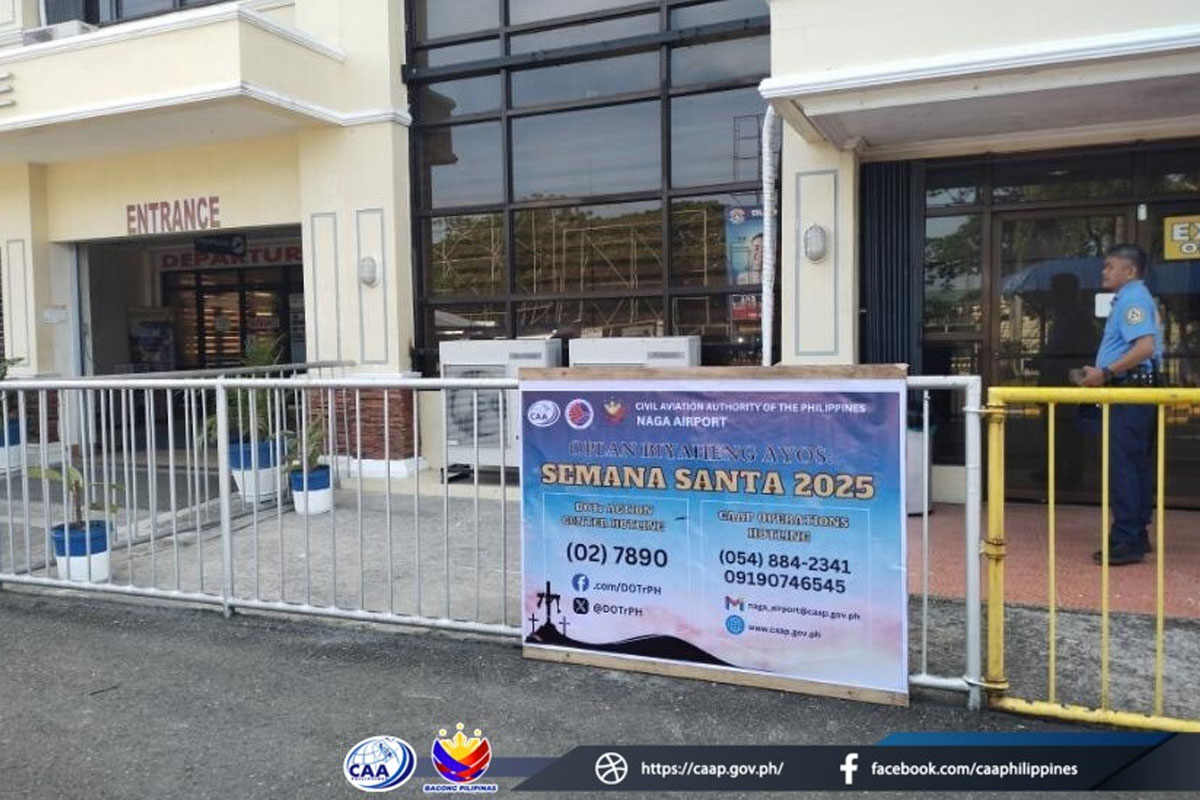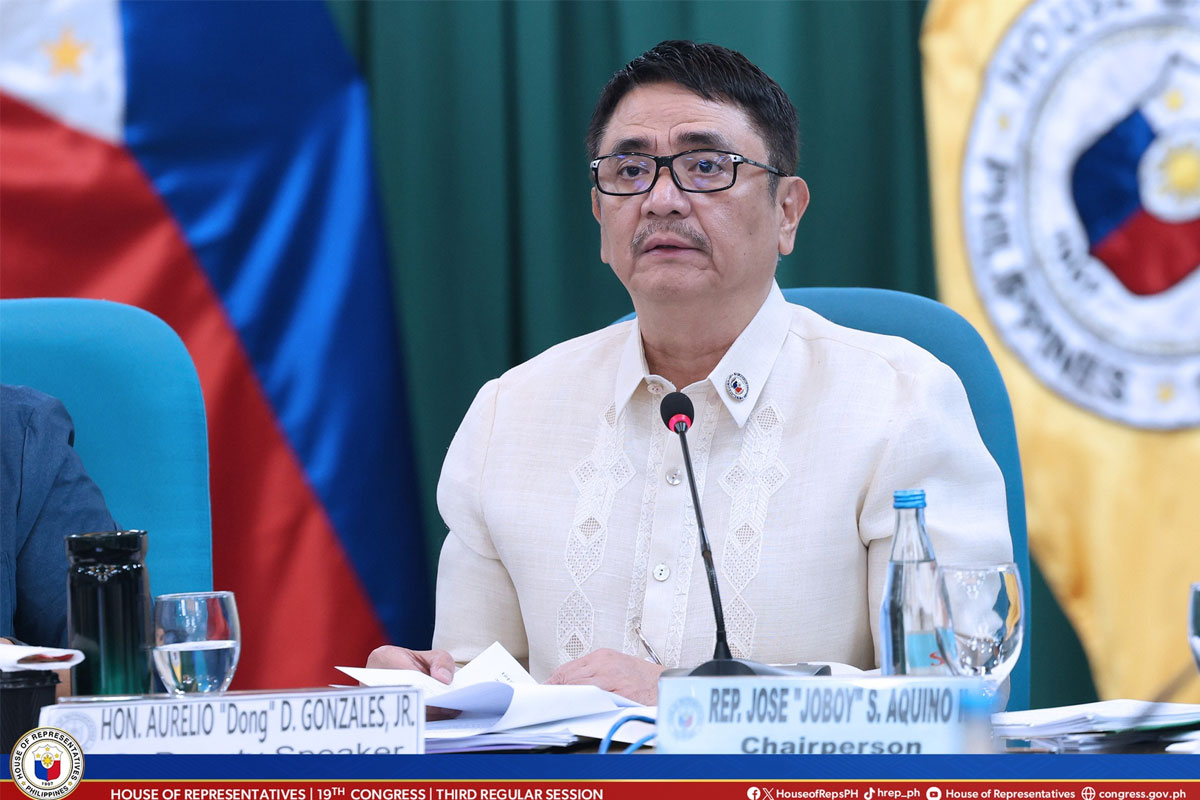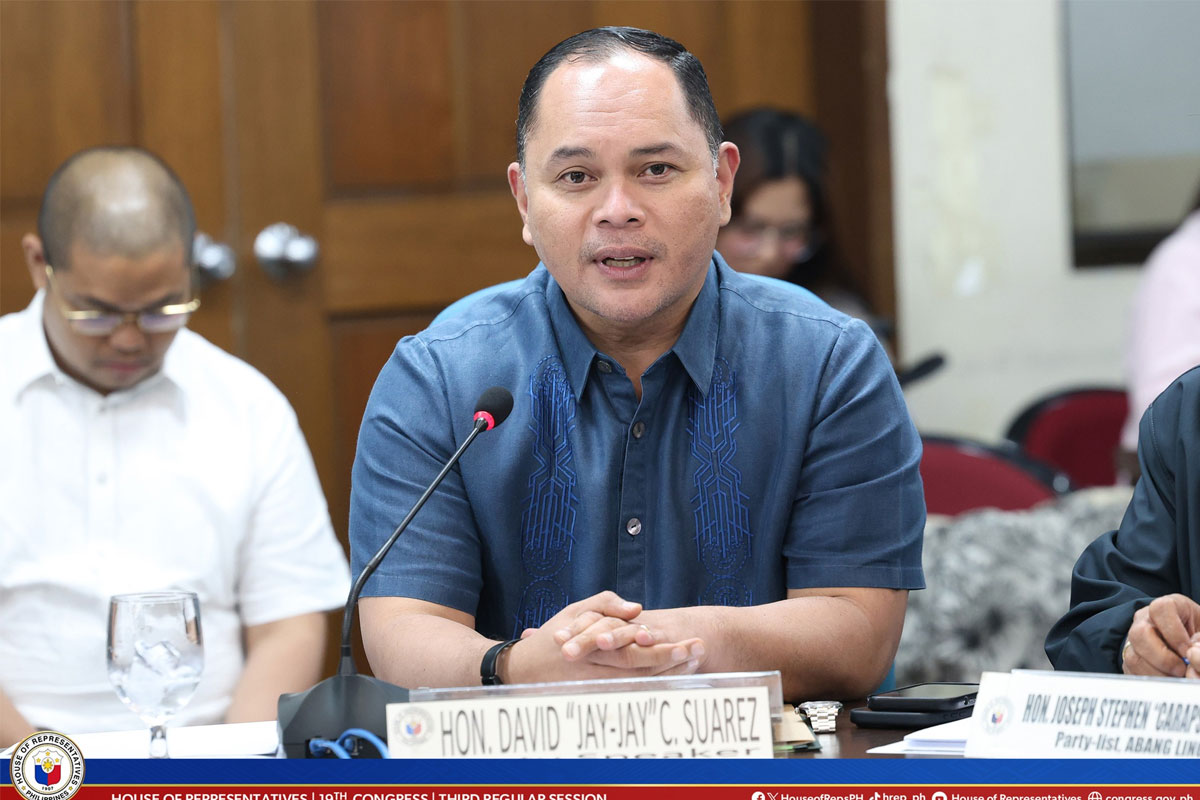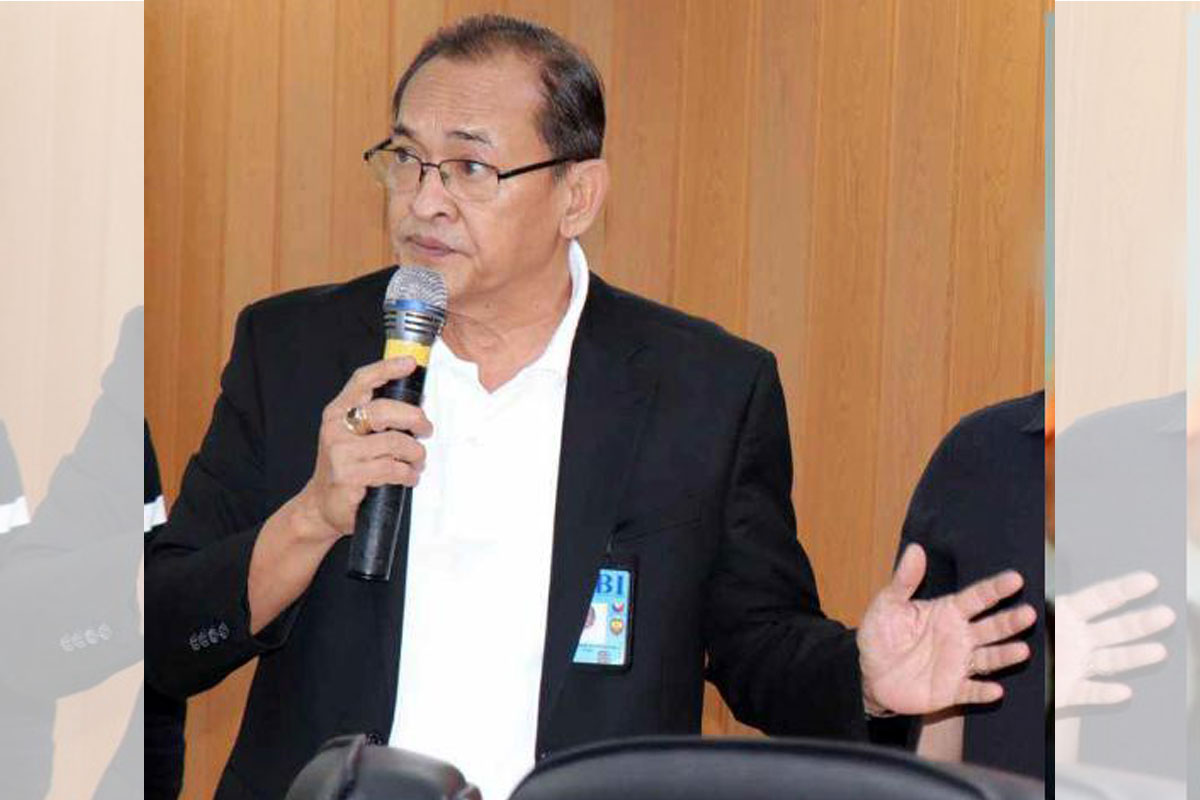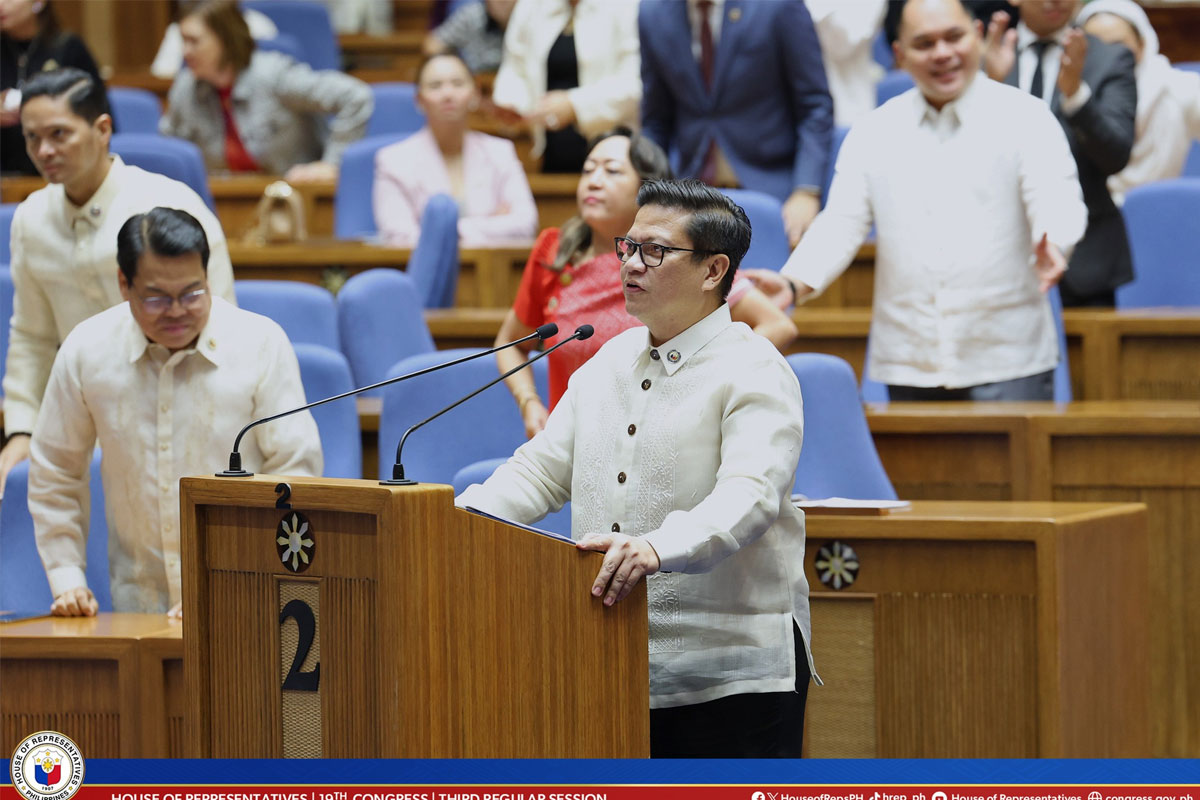
NGCP review pressed
NATIONAL Unity Party (NUP) president and Camarines Sur Rep. LRay Villafuerte has backed the Department of Energy (DOE)’s comprehensive performance review of the National Grid Corp. of the Philippines (NGCP) which could help enlighten the Congress on what legislative actions to take to address the subpar performance of the country’s sole power grid operator.
Villafuerte said “the Congress needs to decide soon enough on whether to alter or amend NGCP’s franchise agreement to compel it to upgrade its system and spend a sizable chunk of its earnings on interconnecting our major islands.
Congress can also revoke its franchise altogether and award it to a much better concessionaire, so the government can deliver cheaper and more stable and accessible electricity to consumers—and meet President Marcos’ goal of achieving 100% household electrification by 2028.”
An advocate of reforms to the Electric Power Industry Reform Act (EPIRA) to make power more affordable and accessible for Filipinos, Villafuerte is hoping “the DOE could complete at the soonest its NGCP performance audit, which, hopefully, can help us lawmakers reach a consensus on what actions we have to take to reverse the below par performance of our lone power grid operator in terms of preventing major power disruptions, and compelling it to complete its transmission projects as scheduled and spending bigger on interconnecting our major islands.”
Villafuerte fretted that “the NGCP’s apparent failure to keep up with its transmission development and interconnectivity program for the country is standing in the way of the President’s full-electrification target, given that Mr. Marcos himself revealed in his second SONA (State of the Nation Address) the undue delay in this concessionaire’s 68 transmission projects, including those in the vital Mindanao-Visayas and Cebu-Negros-Panay grids.”
Government data showed that the 68 delayed transmission projects mentioned by the President in his SONA covered 36 projects in Luzon, 21 in the Visayas and 11 in Mindanao—with a combined P231 billion-worth of supposed investments by NGCP between 2009 and 2019.
It showed that 31 of these delayed projects worth P22.705 billion in total were listed under those approved in the third regulatory period (TRP) or rate reset period, while the 37 others totaling P208.34 billion in supposed investments were listed outside of the TRP.
One of the 37 delayed transmission projects is the Pagbilao EHV Substation Project, which is the southern portion of the 500 kV transmission backbone from Tayabas, Quezon to Naga, CamSur.
Villafuerte said the would-be outcome of this comprehensive performance audit of NGCP, which the President confirmed in his SONA, may guide the Congress on how best to achieve stable, adequate and affordable electricity nationwide—as intended by the EPIRA of 2001 or Republic Act (RA) 9136—whether by an amendatory law to EPIRA, alterations to the NGCP franchise beneficial to consumers and against regulatory capture, or a change of concessionaire.
“We need answers to these questions: Will reforming or amending the over two-decade-old EPIRA be enough to, for example, prevent regulatory capture that has apparently allowed the NGCP to funnel most of its corporate profits into dividends for its owners instead of into capex (capital expenditure) to expand and upgrade its physical or fixed assets and, worse, collect higher electricity charges even for its still-unfinished transmission projects?”
“Or will the Congress have to amend the exclusive concession agreement that the NGCP acquired from the government in 2009 to require it to pay a higher franchise fee or corporate income tax? Or to compel it to meet its warranted deliverables, if not revoke this deal altogether for its apparent contract violations?”
The President said the country finally has a unified national grid, with the interconnection of the Luzon, Visayas and Mindanao grids meant to “enable more efficient transfers and more competitive pricing of electricity throughout the country.”
The Chief Executive added that a performance review of private concessionaire NGCP was being done, as he cited the Energy Regulatory Commission (ERC)’s count that “68 grid connections are much delayed.
We are conducting a performance review of our private concessionaire …We look to NGCP to complete all of its deliverables, starting with the vital Mindanao-Visayas and Cebu-Negros-Panay interconnections.”
Energy Secretary Raphael Lotilla said the performance audit of NGCP will allow policymakers and industry regulators to determine how this segment of the electric power industry can be improved to attract investments, especially in renewable energy (RE) ventures, and what remedies can be undertaken by the Congress, for certain violations.
Villafuerte said industry experts believe that NGCP had secured a concession deal that was skewed in its favor because it was able to bag this highly profitable exclusive contract for just a reported $3.95 billion or about P172 billion (at the then dollar-peso exchange rate of P43.75), with NGCP coughing up a downpayment in dollars equivalent to P46 billion.
The balance of about P127 billion was to be paid in installments (with interest) over a 20-year period.
NGCP bagged that concession deal for just that amount ostensibly because the agreement had committed this firm to upgrade and expand the national transmission backbone or interconnect the major Philippine islands.
A consortium that is owned 60% by the Sy-controlled Monte Oro Grid Resources Corp. and the Coyiuto-led Calaca High Power Corp. and 40% by the State Grid Corp. of China (SGCC), obtained a 50-year franchise from the Congress and a concession agreement for 25 years and renewable for extension of another 25 years.
Villafuerte recalled that in a recent Senate hearing, ERC Chairperson Monalisa Dimalanta said the ERC had allowed NGCP to charge consumers for its unfinished development and expansion projects on the strength of a Maximum Annual Revenue (MAR) order issued by the Commission in 2020 during the then-Duterte administration that increased its income ceiling.
The Bicolano solon said that senators have learned during the public hearings that the NGCP had channeled a lion’s share of its annual net income to the dividend share of its shareholders.
Such net income totaled P85.4 billion in the years 2014, 2015, 2017 and 2019, of which P79 billion or almost 87% was distributed among the stockholders.
NGCP Assistant Corporate Secretary Ronald Concepcion told senators in one of those public hearings that the firm distributed to its shareholders P15 billion of its P20.3 billion net income in P2019, P19 billion of its P20.6 billion net income in 2017, P21 billion of its P22.5 billion net income in 2015 and P24 billion in 2014 despite earning just P22 billion that year.
Villafuerte said that on top of the performance issues, there has been increasing concern over the role of the SGCC in the NGCP, more so with the tension between Manila and Beijing over the latter’s unabated incursions into the West Philippine Sea (WPS).
These incursions by Chinese military, paramilitary and private fishing vessels are in disregard of the 2016 decision by the Permanent Court of Arbitration (PCA) in The Hague, The Netherlands, to: (1) rule that the WPS is part of our Exclusive Economic Zone (EEZ) under the United Nations Convention on the Law of the Sea (UNCLOS), and (2) invalidate China’s nine-dash-line claim over almost the entire South China Sea (SCS).
In line with the privatization thrusts of the EPIRA, the transmission assets previously managed by the National Transmission Co. (Transco) were taken over by the NGCP in 2019.
Villafuerte said that alongside complaints about NGCP’s inferior performance, the mounting calls for re-nationalization or the return of NGCP-run assets to the Transco has been fueled, too, by suspicions that the SGCC has access to the hardware and software systems of our transmission grid, and is thus capable of remotely shutting down by computer our electric power in the Philippines at any given time.
He said the national security risk of SGCC’s access to our national transmission backbone was raised during the former Duterte administration by three of its then-top executives—National Security Adviser Hermogenes Esperon, DOE Secretary Alfonso Cusi and Transco president Melvin Matibag.
Villafuerte said that the Presidential Communications Office (PCO) recently issued a statement expressing President Marcos’ support for the ongoing Senate probe of NGCP “to determine the actual situation. If necessary, the government will take back control of the entity.”




